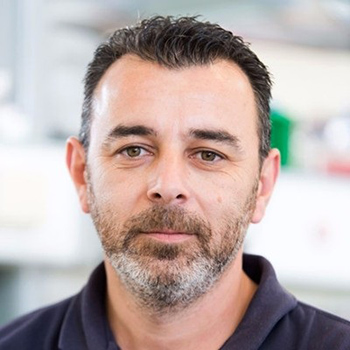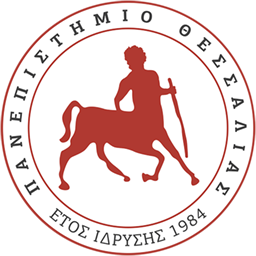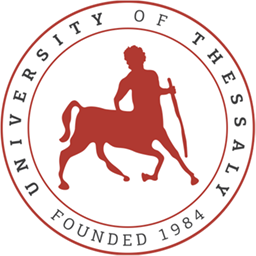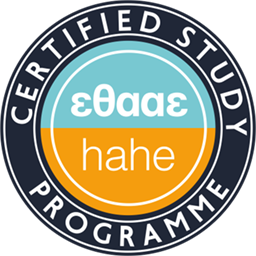Cell Biology
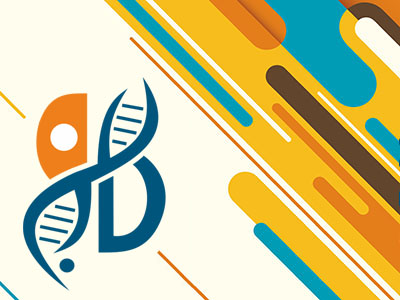
Content – Aim of the course
The first book on cell entitled The Cell in Development and Inheritance was published in 1896 by the American embryologist E.E. Wilson. Since then, there has been remarkable progress in biological sciences, which has also allowed the in-depth study of several important aspects of cell biology and the understanding of cell as a basic functional and reproductive unit of life. The course aims to give a concise presentation of the basic principles of cell biology, incorporating, wherever possible, recent findings and discoveries. It provides the necessary background for the understanding at the molecular level of how the cell functions, produces and uses energy, maintains its structure, interacts with the environment, reproduces and finally dies.
Analytical Description of the Course
- BIOLOGICAL MEMBRANES: The chemistry and architecture of biomembranes – The plasma membrane – Membrane cortex – Membrane differentiation and specialisation.
- TRANSPORT ACROSS THE CELL MEMBRANES: Types of transport – Diffusion – Membrane Transporters – Resting potential and ion channels.
- CELLULAR ENERGETICS: Energy metabolism in the cytosol – Structure of mitochondria and the metabolism of carbohydrates and lipids – Oxidative phosphorylation – Metabolism regulation.
- PHOTOSYNTHESIS: Structure of chloroplasts – The light-absorbing reactions and ATP production – Carbon fixation reactions – The C4 pathway of carbon fixation.
- CYTOSKELETON: Microfilaments and actin dynamics – Cell motility and control of cell shape – Microtubules and intermediate filaments – Cilia and flagella – Microtubules and mitosis.
- THE NUCLEUS: The structure of nucleus and nuclear envelope – The anatomy of genes and chromosomes – DNA replication, repair and recombination.
- FROM DNA TO PROTEINS: Transcription and mRNA processing – Ribosome structure and biogenesis – Protein synthesis.
- PROTEIN SORTING: Structure of endoplasmic reticulum and Golgi complex – Synthesis of plasma membrane, secretory and lysosomal proteins – Transport and modifications across the ER and Golgi complex – Vesicular transport.
- LYSOSOMES AND PEROXIDES: Biogenesis and functions.
- CELL DIVISION: Cell cycle – Mitosis – Meiosis.
- REGULATION OF THE EUKARYOTIC CELL CYCLE.
Practicals
- Water movement across the plasma membrane.
- Cell fractionation.
- Stereology – Determining the size of subcellular structures.
- Mitosis and meiosis.
- Presentation of special aspects of cell biology as wall charts.
Assessment
The degree examination for this course consists of a) a theory paper during the examination periods held twice a year (80%) and b) the presentation of special aspects of cell biology (20%).
Reading Suggestions
- Molecular Cell Biology, Lodish H., Berk A., C.A. Kaiser, M. Krieger, M.P. Scott, A. Bretscher, H. Ploegh & P. Matsudaira, 6th edition, W.H. Freeman & Co, 2007.
- Molecular Biology of the Cell, Alberts B., Johnston A., Lewis J., Raff M., Roberts K. and Walter P., 4th edition, Garland Pub, 2002.
- Molecular Biology of the Cell – The Problems Book, J. Wilson & T. Hunt, 5th edition, Garland Pub, 2007.
Teaching Material / E-class
Lecturers
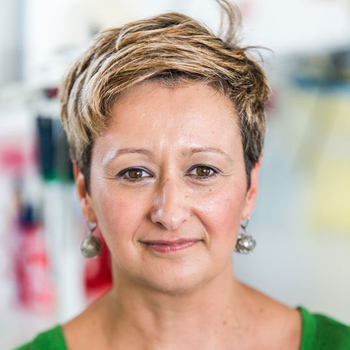
Katerina Μoutou (Course Coordinator)
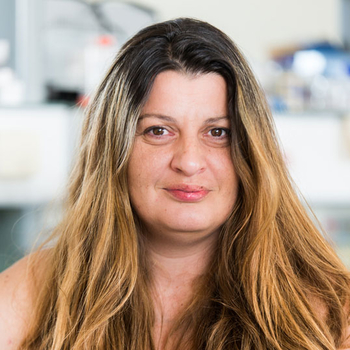
Theologia Sarafidou
